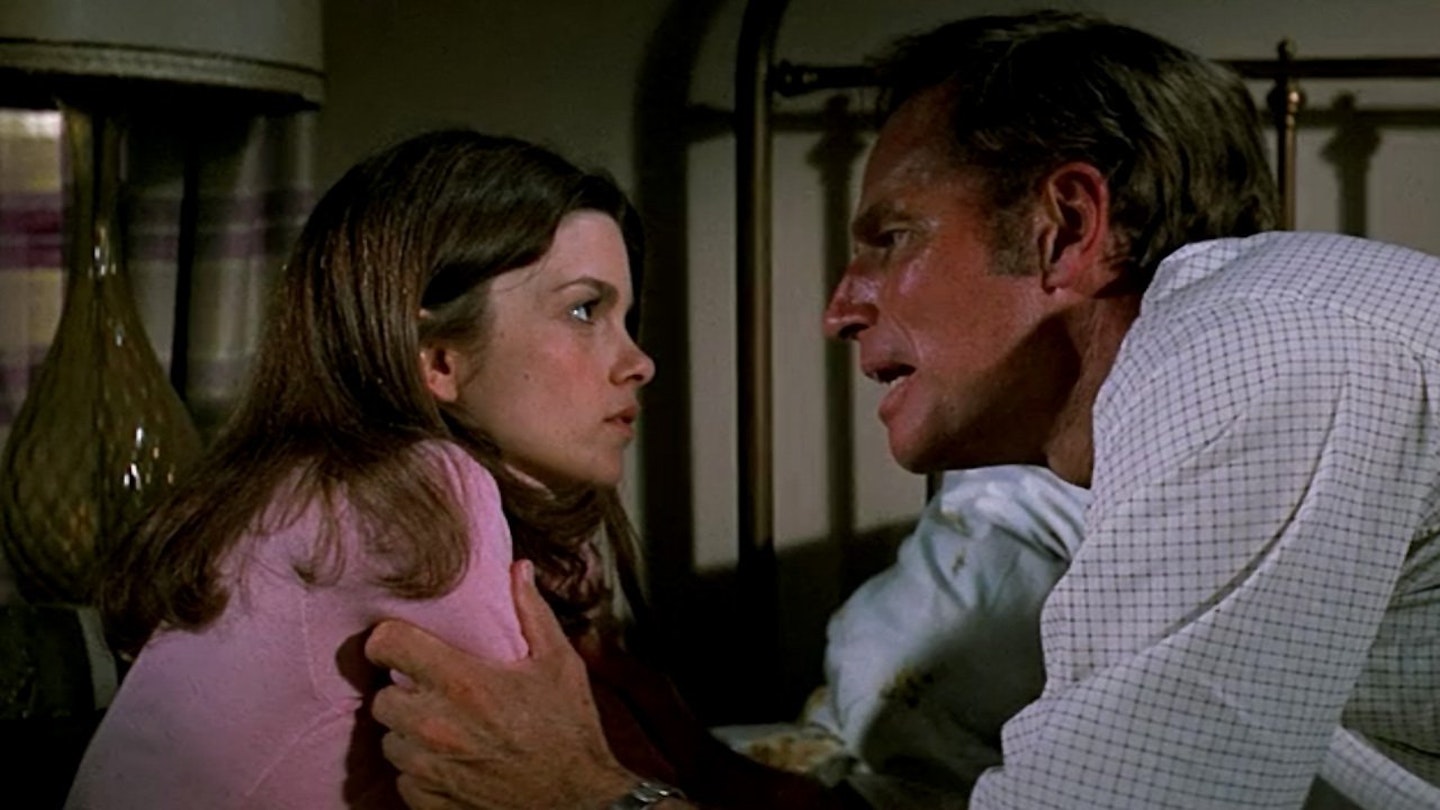Whatever else you may say about Irwin Allen’s boldest effort as purveyor of fire and brimstone for the mass market, the sound was great. Heralded from its posters, the film came fully equipped with Sensoround, a process that would, hopefully, give the audience a three dimensional experience as the crunching of concrete and the twisting of steel reverberate through our very backsides. This was, however, rather dependant on the quality of the speakers at your local fleapit. And a sensational buzzing through the bottom apart, this remains a big, bloated, piece of empty spectacle hoping its could-happen concept would give it a spiky resonance.
While earlier entries into Allen’s cannon of disaster movies confined their spread of labouring has-beens to a single location (boat, skyscraper, et al) here it must sprawl across a whole city. It’s like Altman’s Short Cuts meets the apocalypse. As dams break, buildings shatter, and power lines fry Angelinos, we also have to deal with Lorne Greene as boozy Ava Gardener’s father (despite only seven years difference); as her husband, sturdy hero Charlton Heston (two years younger) plays away with Genevieve Bujold.
It’s all a muddle of soap operatics with none of the rich-kids up in flame spice of The Towering Inferno. Only Walter Matthau’s blithering drunk is in any way interesting, as he stumbles about oblivious to the falling masonry.
What can you say of the effects? Well, they are ground-breaking, but only in a literal way. Time and endless we-were-there-with-a-camera “When Nature Bites Back” type documentaries have exposed the shuddering city blocks as the disintegrating models they clearly are. Some of the set building, a morass of ruined civilisation, can be impressive, but when we go up-close with the actors you get more than a hint of that old wobbling camera routine. Anyway, the quake doesn’t even last that long, this is more a movie about the survival for a bunch of idiotic grumble-mouths you would rather see crushed beneath a fallen lamppost.
